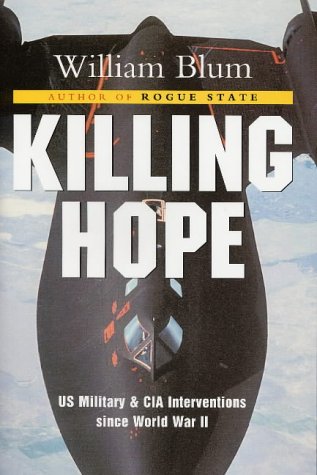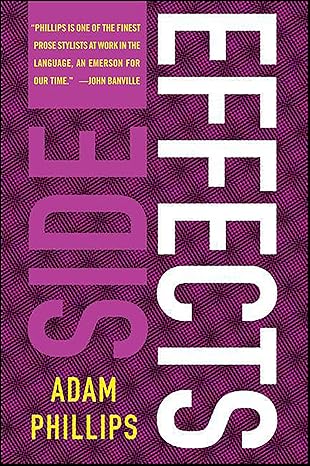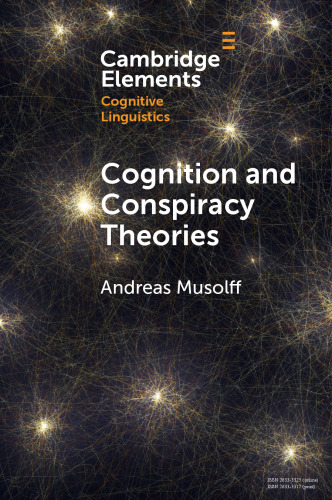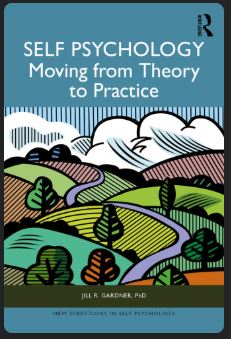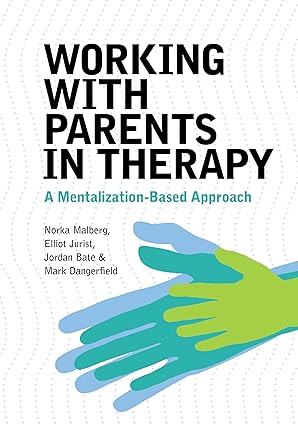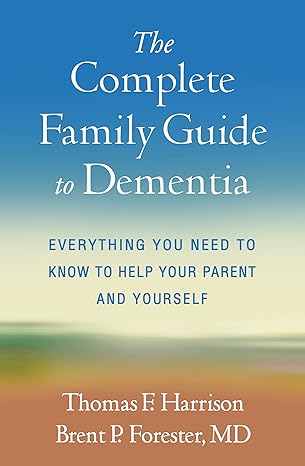This is how it looks to the simple folk of America. One finds that the sophisticated, when probed slightly beneath the surface of their academic language, see it exactly the same way. To the mind carefully brought to adulthood in the United States, the truths of anti- communism are self-evident, as self-evident as the flatness of the world once was to an earlier mind; as the Russian people believed that the victims of Stalin's purges were truly guilty of treason. The foregoing slice of American history must be taken into account if one is to make sense of the vagaries of American foreign policy since the end of World War II, specifically the record, as presented in this book, of what the US military and the CIA and other branches of the US government have done to the peoples of the world. In 1918, the barons of American capital needed no reason for their war against communism other than the threat to their wealth and privilege, although their opposition was expressed in terms of moral indignation. During the period between the two world wars, US gunboat diplomacy operated in the Caribbean to make "The American Lake" safe for the fortunes of United Fruit and W.R. Grace & Co., at the same time taking care to warn of "the Bolshevik threat" to all that is decent from the likes of Nicaraguan rebel Augusto Sandino. By the end of the Second World War, every American past the age of 40 had been subjected to some 25 years of anti-communist radiation, the average incubation period needed to produce a malignancy. Anti-communism had developed a life of its own, independent of its capitalist father. Increasingly, in the post-war period, middle-aged 9 Washington policy makers and diplomats saw the world out there as one composed of "communists" and "anti-communists", whether of nations, movements or individuals. This comic-strip vision of the world, with righteous American supermen fighting communist evil everywhere, had graduated from a cynical propaganda exercise to a moral imperative of US foreign policy. Even the concept of "non-communist", implying some measure of neutrality, has generally been accorded scant legitimacy in this paradigm. John Foster Dulles, one of the major architects of post-war US foreign policy, expressed this succinctly in his typically simple, moralistic way: "For us there are two sorts of people in the world: there are those who are Christians and support free enterprise and there are the others."14 As several of the case studies in the present hook confirm, Dulles put that creed into rigid practice. The word "communist" (as well as "Marxist") has been so overused and so abused by American leaders and the media as to render it virtually meaningless. (The Left has done the same to the word "fascist".) But merely having a name for something—witches or flying saucers—attaches a certain credence to it. At the same time, the American public, as we have seen, has been soundly conditioned to react Pavlovianly to the term: it means, still, the worst excesses of Stalin, from wholesale purges to Siberian slave-labor camps; it means, as Michael Parenti has observed, that "Classic Marxist-Leninist predictions [concerning world revolution] are treated as statements of intent directing all present-day communist actions."15 It means "us" against "them". And "them" can mean a peasant in the Philippines, a mural-painter in Nicaragua, a legally-elected prime minister in British Guiana, or a European intellectual, a Cambodian neutralist, an African nationalist—all, somehow, part of the same monolithic conspiracy; each, in some way, a threat to the American Way of Life; no land too small, too poor, or too far away to pose such a threat, the "communist threat". The cases presented in this book illustrate that it has been largely irrelevant whether the particular targets of intervention—be they individuals, political parties, movements or governments—called themselves "communist" or not. It has mattered little whether they were scholars of dialectical materialism or had never heard of Karl Marx; whether they were atheists or priests; whether a strong and influential Communist Party was in the picture or not; whether the government had come into being through violent revolution or peaceful elections ... all have been targets, all "communists". It has mattered still less that the Soviet KGB was in the picture. The assertion has been frequently voiced that the CIA carries out its dirty tricks largely in reaction to operations of the KGB which have been "even dirtier". This is a lie made out of whole cloth. There may be an isolated incident of such in the course of the CIA's life, but it has kept itself well hidden. The relationship between the two sinister agencies is marked by fraternization and respect for fellow professionals more than by hand-to-hand combat. Former CIA officer John Stockwell has written: Actually, at least in more routine operations, case officers most fear the US ambassador and his staff, then restrictive headquarters cables, then curious, gossipy neighbors in the local community, as potential threats to operations. Next would come the local police, then the press. Last of all is the KGB—in my twelve years of case officering I never saw or heard of a situation in which the KGB attacked or obstructed a CIA operation.16 Stockwell adds that the various intelligence services do not want their world to be "complicated" by murdering each other. 10 It isn't done. If a CIA case officer has a flat tire in the dark of night on a lonely road, he will not hesitate to accept a ride from a KGB officer—likely the two would detour to some bar for a drink together. In fact CIA and KGB officers entertain each other frequently in their homes. The CIA's files are full of mention of such relationships in almost every African station.17 Proponents of "fighting fire with fire" come perilously close at times to arguing that if the KGB, for example, had a hand in the overthrow of the Czechoslovak government in 1968, it is OK for the CIA to have a hand in the overthrow of the Chilean government in 1973. It's as if the destruction of democracy by the KGB deposits funds in a bank account from which the CIA is then justified in making withdrawals. What then has been the thread common to the diverse targets of American intervention which has brought down upon them the wrath, and often the firepower, of the world's most powerful nation? In virtually every case involving the Third World described in this book, it has been, in one form or another, a policy of "self- determination": the desire, born of perceived need and principle, to pursue a path of development independent of US foreign policy objectives. Most commonly, this has been manifested in (a) the ambition to free themselves from economic and political subservience to the United States; (b) the refusal to minimize relations with the socialist bloc, or suppress the left at home, or welcome an American military installation on their soil; in short, a refusal to be a pawn in the Cold War; or (c) the attempt to alter or replace a government which held to neither of these aspirations; i.e., a government supported by the United States. It cannot be emphasized too strongly that such a policy of independence has been viewed and expressed by numerous Third World leaders and revolutionaries as one not to be equated by definition to anti-Americanism or pro-communism, but as simply a determination to maintain a position of neutrality and non- alignment vis-a-vis the two superpowers. Time and time again, however, it will be seen that the United States was not prepared to live with this proposition. Arbenz of Guatemala, Mossadegh of Iran, Sukarno of Indonesia, Nkrumah of Ghana, Jagan of British Guiana, Sihanouk of Cambodia ... all, insisted Uncle Sam, must declare themselves unequivocally on the side of "The Free World" or suffer the consequences. Nkrumah put the case for non- alignment as follows: The experiment which we tried in Ghana was essentially one of developing the country in co-operation with the world as a whole. Non-alignment meant exactly what it said. We were not hostile to the countries of the socialist world in the way in which the governments of the old colonial territories were. It should be remembered that while Britain pursued at home coexistence with the Soviet Union this was never allowed to extend to British colonial territories. Books on socialism, which were published and circulated freely in Britain, were banned in the British colonial empire, and after Ghana became independent it was assumed abroad that it would continue to follow the same restrictive ideological approach. When we behaved as did the British in their relations with the socialist countries we were accused of being pro-Russian and introducing the most dangerous ideas into Africa
چکیده فارسی
برای مردم ساده آمریکا اینگونه به نظر می رسد. درمییابد که افراد پیچیده، وقتی اندکی زیر سطح زبان آکادمیک خود کاوش میکنند، دقیقاً به همین شکل میبینند. برای ذهنی که در ایالات متحده به دقت به بزرگسالی آورده شده است، حقایق ضد کمونیسم بدیهی است، همانطور که مسطح بودن جهان زمانی برای یک ذهن قبلی بدیهی است. همانطور که مردم روسیه بر این باور بودند که قربانیان پاکسازی های استالین واقعاً خیانت کرده اند. اگر بخواهیم ابهامات سیاست خارجی آمریکا از پایان جنگ جهانی دوم را بفهمیم، به ویژه سوابق آنچه در این کتاب ارائه شده است، باید در نظر گرفته شود. و دیگر شاخه های دولت آمریکا با مردم جهان رفتار کرده اند. در سال 1918، بارونهای سرمایه آمریکا برای جنگ علیه کمونیسم به دلیلی جز تهدید ثروت و امتیازات خود نیاز نداشتند، اگرچه مخالفت آنها در قالب خشم اخلاقی بیان شد. در طول دوره بین دو جنگ جهانی، دیپلماسی قایقهای توپدار ایالات متحده در دریای کارائیب برای ایمن کردن "دریاچه آمریکایی" برای ثروت یونایتد فروت و W.R. Grace & Co. و در عین حال مراقب "تهدید بلشویکی" بود. "به همه چیزهایی مانند آگوستو ساندینو، شورشی نیکاراگوئه ای. تا پایان جنگ جهانی دوم، هر آمریکایی که 40 سال داشت، حدود 25 سال در معرض تشعشعات ضد کمونیستی قرار گرفت، یعنی متوسط دوره کمون لازم برای ایجاد یک بدخیمی. ضد کمونیسم زندگی مستقلی از پدر سرمایه دار خود ایجاد کرده بود. به طور فزاینده ای، در دوره پس از جنگ، سیاست گذاران و دیپلمات های میانسال واشنگتن، جهان را متشکل از «کمونیست ها» و «ضد کمونیست ها»، چه از ملت ها، نه جنبش ها و یا افراد، می دیدند. این چشم انداز کمیک استریپ از جهان، با ابرمردان عادل آمریکایی که در همه جا با شر کمونیستی مبارزه می کنند، از یک تمرین تبلیغاتی بدبینانه به یک الزام اخلاقی در سیاست خارجی ایالات متحده تبدیل شده بود. حتی مفهوم «غیر کمونیست» که حاکی از میزانی از بی طرفی است، عموماً در این پارادایم مشروعیت ناچیزی دارد. جان فاستر دالس، یکی از معماران اصلی سیاست خارجی ایالات متحده پس از جنگ، این را به اختصار به شیوه معمولی ساده و اخلاقی خود بیان کرد: "برای ما دو نوع مردم در جهان وجود دارند: کسانی هستند که مسیحی هستند و از آزادگان حمایت می کنند. همانطور که چندین مورد از مطالعات موردی در قلاب حاضر تأیید میکنند، دالس این عقیده را در عمل سخت قرار داد. کلمه "کمونیست" (و همچنین "مارکسیست") به قدری توسط رهبران و رسانه های آمریکایی مورد سوء استفاده و سوء استفاده قرار گرفته است که عملاً آن را بی معنی می کند. (چپ نیز همین کار را با کلمه "فاشیست" انجام داده است.) اما صرفاً داشتن نام برای چیزی - جادوگر یا بشقاب پرنده - اعتبار خاصی به آن می دهد. در عین حال، همانطور که دیدیم، عموم مردم آمریکا کاملاً مشروط شدهاند تا به این اصطلاح واکنش پاولویانهای نشان دهند: این به معنای بدترین افراطهای استالین است، از پاکسازیهای عمده تا اردوگاههای بردهداری سیبری. همانطور که مایکل پارنتی مشاهده کرده است، این بدان معناست که «پیشبینیهای مارکسیست-لنینیستی کلاسیک [درباره انقلاب جهانی] بهعنوان بیانیهای مبنی بر هدف هدایت تمام کنشهای کمونیستی امروزی تلقی میشوند». و "آنها" می تواند به معنای یک دهقان در فیلیپین، یک نقاش دیواری در نیکاراگوئه، یک نخست وزیر منتخب قانونی در گویان بریتانیا، یا یک روشنفکر اروپایی، یک خنثی گرا کامبوجی، یک ناسیونالیست آفریقایی باشد - همه، به نوعی، بخشی از یکسان هستند. توطئه یکپارچه؛ هر یک به نوعی تهدیدی برای شیوه زندگی آمریکایی است. هیچ سرزمینی آنقدر کوچک، خیلی فقیر یا خیلی دور نیست که بتواند چنین تهدیدی، «تهدید کمونیستی» را ایجاد کند. موارد ارائه شده در این کتاب نشان می دهد که این موضوع تا حد زیادی بی ربط بوده است که آیا اهداف خاص مداخله – خواه افراد، احزاب سیاسی، جنبش ها یا دولت ها – خود را «کمونیست» می نامند یا خیر. فرقی نمیکند که آنها محقق ماتریالیسم دیالکتیکی باشند یا هرگز نام کارل مارکس را نشنیده باشند. چه آنها ملحد بودند و چه کشیش. آیا یک حزب کمونیست قوی و با نفوذ در تصویر بود یا خیر. چه حکومت از طریق انقلاب خشونت آمیز به وجود آمده باشد و چه از طریق انتخابات مسالمت آمیز... همه هدف بوده اند، همه «کمونیست ها». این که KGB اتحاد جماهیر شوروی در تصویر حضور داشت، اهمیت چندانی نداشت. این ادعا اغلب مطرح شده است که سیا ترفندهای کثیف خود را عمدتاً در واکنش به عملیات KGB انجام می دهد که "حتی کثیف تر" بوده است. این دروغی است که از تمام پارچه ساخته شده است. ممکن است در طول زندگی سیا یک حادثه مجزا از این قبیل وجود داشته باشد، اما خود را به خوبی مخفی نگه داشته است. رابطه بین این دو سازمان شوم با برادری و احترام به همکاران حرفه ای بیشتر از جنگ تن به تن مشخص شده است. جان استاکول، افسر سابق سیا نوشته است: در واقع، حداقل در عملیاتهای معمولتر، افسران پرونده بیشتر از سفیر ایالات متحده و کارکنانش، سپس از کابلهای مقر محدودکننده، سپس از همسایگان کنجکاو و شایعهساز در جامعه محلی، بهعنوان تهدیدهای بالقوه برای عملیات میترسند. بعد پلیس محلی و سپس مطبوعات می آیند. نکته آخر کا گ ب است – در دوازده سالی که کارم را برعهده داشتم، هرگز وضعیتی را ندیدم یا چیزی نشنیده بودم که در آن کا گ ب به یک عملیات سیا حمله کند یا مانع آن شود. 16 استاکول اضافه می کند که سرویس های اطلاعاتی مختلف نمی خواهند دنیایشان "پیچیده" شود. "با کشتن یکدیگر. 10 انجام نشده است. اگر یک افسر پرونده سیا در تاریکی شب در یک جاده خلوت لاستیک پنچر شود، در پذیرفتن سواری از یک افسر KGB تردیدی نخواهد داشت - احتمالاً آن دو برای نوشیدن با هم به یک بار منحرف می شوند. در واقع افسران سیا و کا گ ب به طور مکرر یکدیگر را در خانه هایشان سرگرم می کنند. تقریباً در هر ایستگاه آفریقایی، پروندههای سیا مملو از ذکر چنین روابطی است. (17) طرفداران «مبارزه با آتش با آتش» گاهی به طور خطرناکی به این استدلال نزدیک میشوند که اگر مثلاً KGB در سرنگونی دولت چکسلواکی دست داشته باشد. در سال 1968، خوب است که سیا در سرنگونی دولت شیلی در سال 1973 دست داشته باشد. گویی تخریب دموکراسی توسط KGB وجوه را به حساب بانکی واریز می کند که سپس سیا برای برداشت از آن توجیه می شود. در این صورت، چه رشتهای مشترک در میان اهداف گوناگون مداخله آمریکا بوده است که خشم و اغلب قدرت آتش قدرتمندترین کشور جهان را بر آنها فرو برده است؟ تقریباً در هر موردی که مربوط به جهان سوم است که در این کتاب توضیح داده شده است، به یک شکل یا آن شکل، یک سیاست «خود تعیینی» بوده است: میل برخاسته از نیاز و اصل درک شده، برای دنبال کردن مسیر توسعه مستقل از اهداف سیاست خارجی آمریکا معمولاً، این در (الف) جاه طلبی برای رهایی خود از انقیاد اقتصادی و سیاسی از ایالات متحده تجلی یافته است. (ب) امتناع از به حداقل رساندن روابط با بلوک سوسیالیستی، یا سرکوب چپ در داخل، یا استقبال از تأسیسات نظامی آمریکا در خاک آنها؛ به طور خلاصه، امتناع از پیاده شدن در جنگ سرد. یا (ج) تلاش برای تغییر یا جایگزینی دولتی که به هیچ یک از این آرزوها پایبند نبود. یعنی دولتی که توسط ایالات متحده حمایت می شود. نمی توان به شدت تاکید کرد که چنین سیاست استقلالی توسط بسیاری از رهبران و انقلابیون جهان سوم به عنوان سیاستی تلقی شده و بیان شده است که نمی توان آن را در تعریف با آمریکاستیزی یا طرفدار کمونیسم یکسان دانست، بلکه صرفاً به عنوان عزمی برای حفظ یک موقعیت است. بی طرفی و عدم تعهد در برابر دو ابرقدرت. اما بارها و بارها مشاهده خواهد شد که ایالات متحده آمادگی لازم برای زندگی با این پیشنهاد را نداشت. آربنز از گواتمالا، مصدق از ایران، سوکارنو از اندونزی، نکروماه از غنا، جاگان از گویان بریتانیا، سیهانوک از کامبوج... همگی، عمو سام تاکید کرد، همه باید به صراحت خود را در کنار "دنیای آزاد" اعلام کنند یا عواقب آن را متحمل شوند. . نکرومه مورد عدم تعهد را به شرح زیر بیان کرد: آزمایشی که ما در غنا انجام دادیم اساساً یکی از توسعه کشور در همکاری با کل جهان بود. عدم تعهد دقیقاً به معنای همان چیزی بود که گفته شد. ما با کشورهای جهان سوسیالیستی به شکلی که دولتهای سرزمینهای استعماری قدیمی بودند دشمنی نداشتیم. باید به خاطر داشت که در حالی که بریتانیا به دنبال همزیستی داخلی با اتحاد جماهیر شوروی بود، این هرگز اجازه نداشت تا به سرزمین های استعماری بریتانیا گسترش یابد. کتابهایی درباره سوسیالیسم که آزادانه در بریتانیا منتشر و منتشر میشد، در امپراتوری استعماری بریتانیا ممنوع شد و پس از استقلال غنا، در خارج از کشور فرض شد که همان رویکرد ایدئولوژیک محدودکننده را ادامه خواهد داد. زمانی که ما مانند انگلیسی ها در روابط خود با کشورهای سوسیالیستی رفتار کردیم، متهم به طرفداری از روسیه و وارد کردن خطرناک ترین ایده ها به آفریقا شدیم
ادامه ...
بستن ...
With few exceptions, the interventions never made the headlines or the evening TV news. With some, bits and pieces of the stories have popped up here and there, but rarely brought together to form a cohesive and enlightening whole; the fragments usually appear long after the fact, quietly buried within other stories, just as quietly forgotten, bursting into the foreground only when extraordinary circumstances have compelled it, such as the Iranians holding US embassy personnel and other Americans hostage in Teheran in 1979, which produced a rash of articles on the role played by the United States in the overthrow of the Iranian government in 1953. It was as if editors had been spurred into thinking: "Hey, just what did we do in Iran to make ail those people hate us so?" There have been a lot of Irans in America's recent past, but in the absence of the New York Daily News or the Los Angeles Times conspicuously grabbing the leader by the collar and pressing against his face the full implication of the deed ... in the absence of NBC putting it all into teal pictures of real people on the receiving end ... in such absence the incidents become non-events for the large majority of Americans, and they can honestly say "We didn't know what was happening." 13 Former Chinese Premier Chou En-lai once observed: "One of the delightful things about Americans is that they have absolutely no historical memory." It's probably even worse than he realized. During the Three Mile Island nuclear power plant accident in Pennsylvania in 1979, a Japanese journalist, Atsuo Kaneko of the Japanese Kyoto News Service, spent several hours interviewing people temporarily housed at a hockey rink—mostly children, pregnant women and young mothers. He discovered that none of them had heard of Hiroshima. Mention of the name drew a blank.20 And in 1982, a judge in Oakland, California said he was appalled when some 50 prospective jurors for a death-penalty murder trial were questioned and "none of them knew who Hitler was".21 To the foreign policy oligarchy in Washington, it is more than delightful. It is sine qua non. So obscured is the comprehensive record of American interventions that when, in 1975, the Congressional Research Service of the Library of Congress was asked to undertake a study of covert activities of the CIA to date, it was able to come up with but a very minor portion of the overseas incidents presented in this book for the same period.22 For all of this information that has made its way into popular consciousness, or into school texts, encyclopedias, or other standard reference works, there might as well exist strict censorship in the United States. The reader is invited to look through the relevant sections of the three principal American encyclopedias, Americana, Britannica, and Colliers. The image of encyclopedias as the final repository of objective knowledge takes a beating. What is tantamount to a non-recognition of American interventions may very well be due to these esteemed works employing a criterion similar to that of Washington officials as reflected in the Pentagon Papers. The New York Times summarized this highly interesting phenomenon thusly: Clandestine warfare against North Vietnam, for example, is not seen ... as violating the Geneva Accords of 1954, which ended the French Indochina War, or as conflicting with the public policy pronouncements of the various administrations. Clandestine warfare, because it is covert, does not exist as far as treaties and public posture are concerned. Further, secret commitments to other nations are not sensed as infringing on the treaty-making powers of the Senate, because they are not publicly acknowledged
ادامه ...
بستن ...
